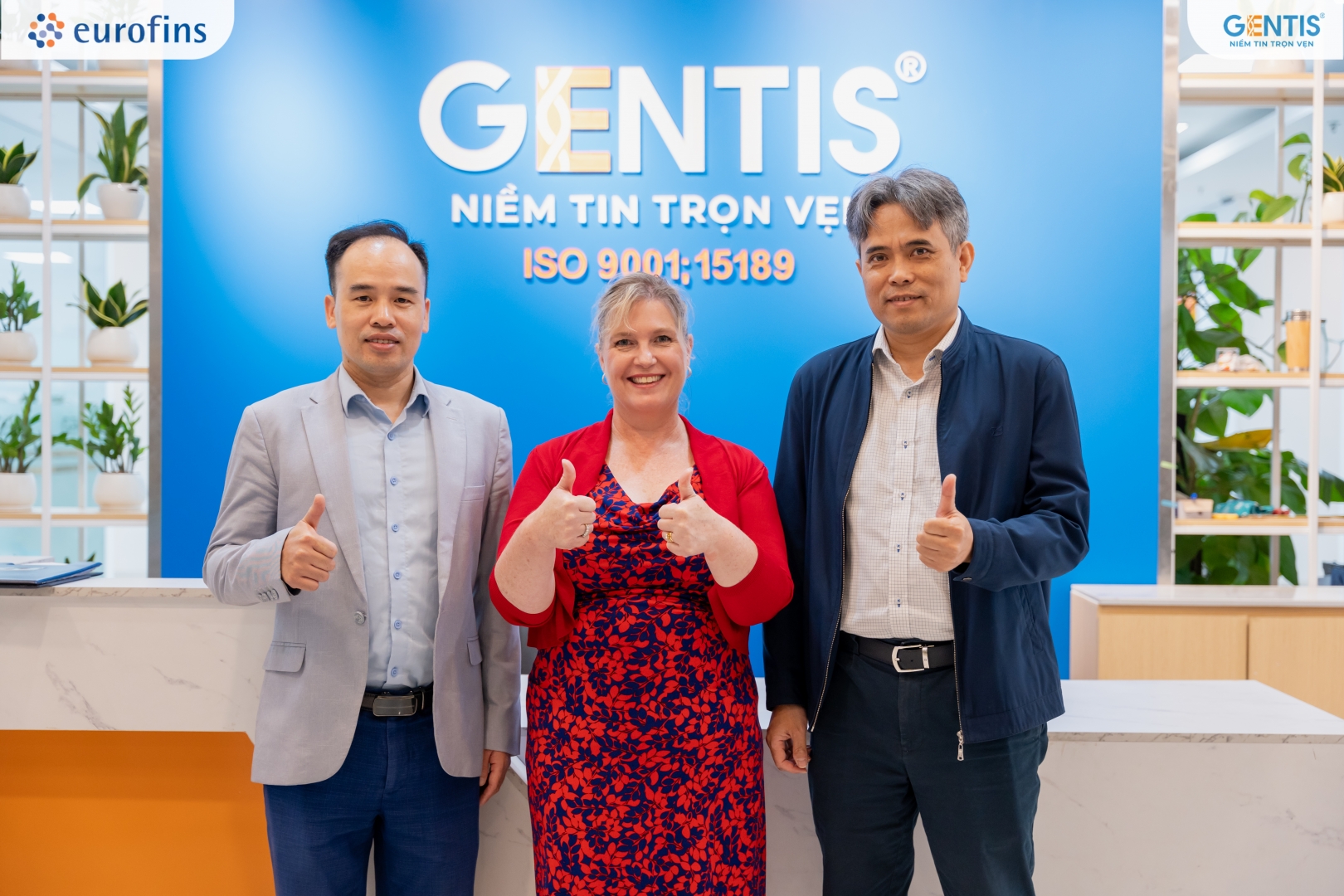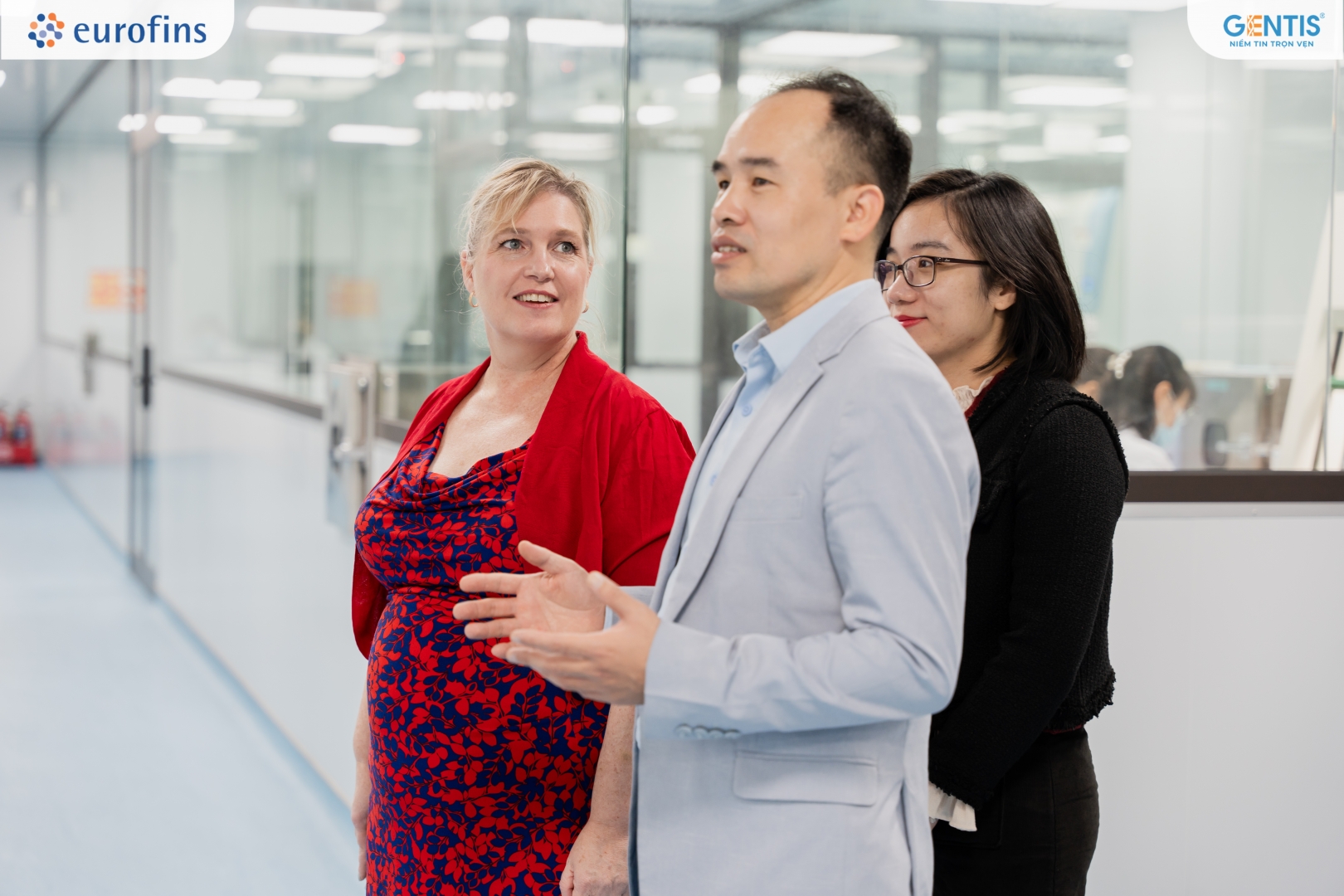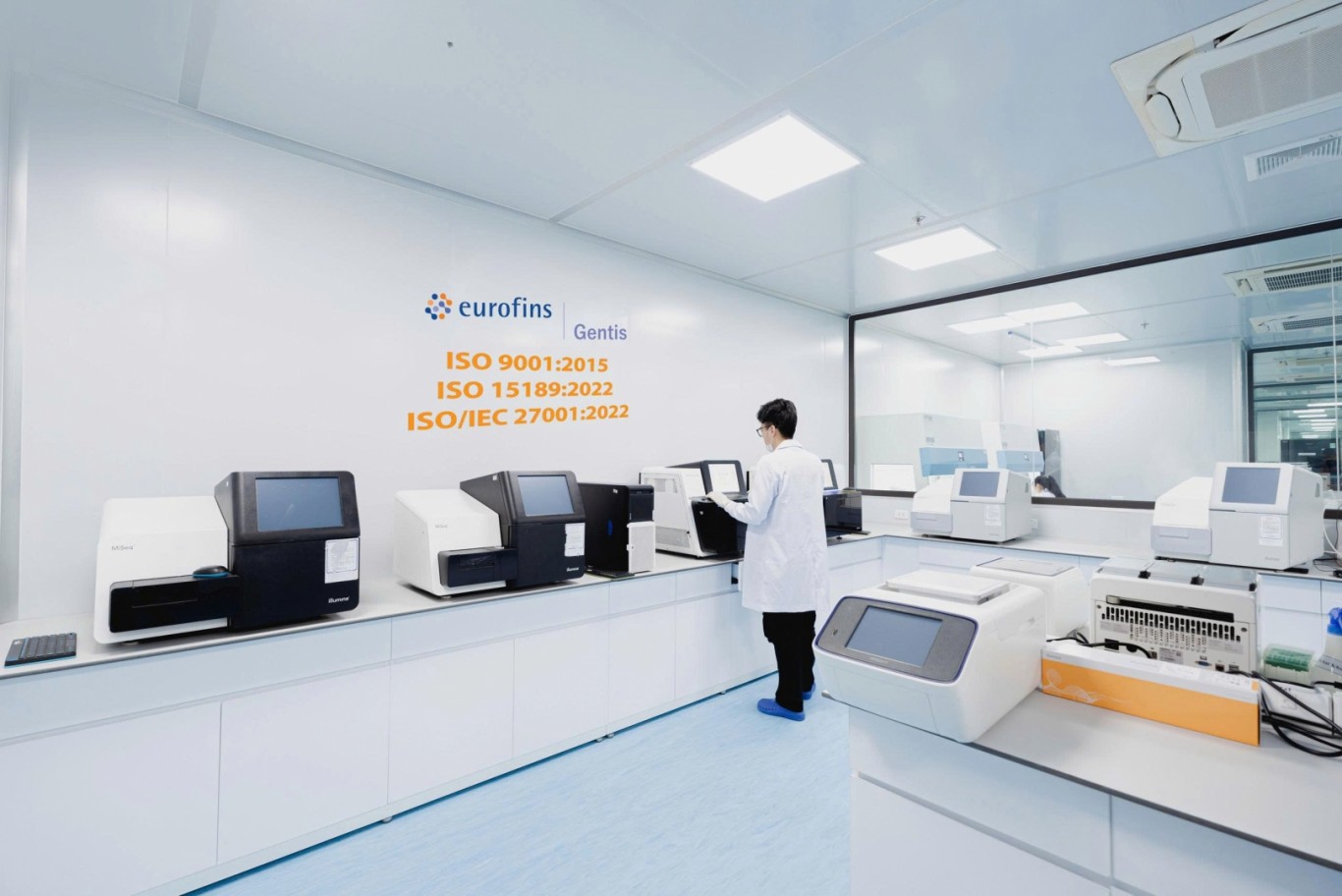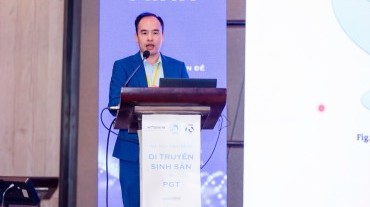The Importance of Genetic Testing in Diagnosis and Disease Screening
According to Ms. Katie Battese Ellis (Senior Director of Medical Affairs at Illumina in several APAC countries), in the past, there were not many available tests, so doctors often gathered the patient's characteristics to identify any potential issues. However, with the development of modern medicine, numerous genetic tests are now available, making the diagnosis and screening of diseases easier.
 Dr. Pham Dinh Minh, Ms. Katie Battese Ellis, and Associate Prof. Dr. Ho Sy Hung (from left to right)
Dr. Pham Dinh Minh, Ms. Katie Battese Ellis, and Associate Prof. Dr. Ho Sy Hung (from left to right)
With these advancements, we can conduct pre-pregnancy tests to see if both partners are carrying the same genetic condition. Pregnant women can undergo testing to monitor fetal development. Newborn screening tests can also be performed to detect conditions that may affect the health and development of the child later on.
From the test results, geneticists and clinical doctors will discuss and create a plan for better monitoring or treatment for the patient. This not only helps save time and treatment costs but also ensures the health and future happiness of the entire family.
As one of the leading experts in reproductive medicine in Vietnam, Associate Prof. Dr. Ho Sy Hung (Deputy Director of the National Reproductive Support Center) mentioned that the collaboration between genetic experts and clinical doctors is crucial. In reproductive medicine, the success rate of pregnancy is about 50%. However, some patients experience repeated miscarriages for unknown reasons, have a history of genetic diseases, or have undergone multiple IVF cycles without success. These cases require pre-implantation genetic testing (PGT) to select healthy embryos for implantation.
Currently, there are three types of traditional PGT tests: PGT-A, PGT-SR, and PGT-M. PGT-A helps identify normal embryos and increases the chances of success in IVF. PGT-SR can detect unbalanced translocations in embryos before transfer, allowing for the selection of normal embryos, thus increasing the chances of a successful pregnancy. PGT-M is used to screen for monogenic genetic diseases, ensuring that only embryos without genetic mutations are transferred.
GENTIS is a pioneering unit in Vietnam capable of accurately and professionally performing PGT tests with the most advanced techniques, along with a team of highly qualified experts. Notably, GENTIS can screen for about 100 monogenic diseases using PGT-M.
In addition, GENTIS also offers PGT NEXT and PGT UPGRADE with outstanding advantages. PGT NEXT can detect chromosomal abnormalities on all 24 chromosomes, additional abnormalities, chromosomal segment deletions, and aneuploidy. Meanwhile, PGT UPGRADE can detect chromosomal abnormalities, segment deletions, and balanced translocations inherited from parents.
.jpg) Experts Participating in the Genetic Counseling Talkshow – Discussion with Experts at GENTIS
Experts Participating in the Genetic Counseling Talkshow – Discussion with Experts at GENTIS
At GENTIS, PGT testing is conducted in an ISO-standard lab using advanced genetic sequencing methods like NGS, Sanger, or PCR, carried out by skilled technicians and experienced analysts. Afterward, geneticists provide the final conclusions and send them to clinical doctors for patient consultation, ensuring the transfer of healthy embryos into the mother's uterus.
According to Dr. Pham Dinh Minh, genetic and genomic testing is booming in Vietnam. Therefore, GENTIS needs the collaboration between doctors, geneticists, and labs to make genetic tests more accessible and useful, especially in reproductive medicine, obstetrics, and newborn screening.
In the near future, GENTIS will incorporate AI and bioinformatics to screen for more diseases and provide more clinical information to assist doctors in offering the best treatment options for patients.
The Connection Between Clinical Doctors, Geneticists, and Genetic Labs
The close collaboration between clinical doctors, geneticists, and genetic laboratories is crucial for the effectiveness of disease diagnosis and treatment. According to Ms. Katie, learning and sharing expertise is essential to strengthen cooperation among all parties.
Genetic labs should regularly update new tests, techniques, accuracy, and result turnaround times to ensure that clinical doctors and patients are better informed about the tests. This will help doctors develop the best treatment plan to save costs for patients.
 Dr. Minh took Ms. Katie on a tour of the GENTIS testing center
Dr. Minh took Ms. Katie on a tour of the GENTIS testing center
From the clinical doctor's perspective, Associate Prof. Dr. Hung pointed out that genetic issues are challenging for both general clinical doctors and obstetricians in particular. Since tests and techniques in reproductive medicine are constantly developing and changing, continuous learning is necessary to share knowledge and assist patients.
For genetic labs, the quality of testing is the key. Based on test results, doctors can accurately diagnose diseases and develop appropriate treatment plans. Therefore, to bring new, high-quality tests to the market, the support of not only medical experts but also geneticists and technology innovators is essential, as Dr. Minh emphasized.
Based on modern medical advancements and technological progress, genetic testing is increasingly becoming an essential tool for screening and diagnosing diseases. However, to ensure maximum effectiveness, clinical doctors, geneticists, and genetic labs must work closely together. Only by functioning as a unified system can the healthcare system provide the most accurate, personalized, and optimal care for patients.











